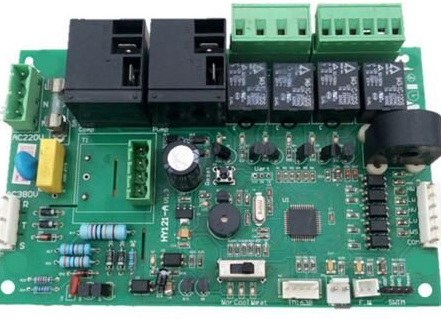In the PCBA foundry process, the choice of PCBA tin penetration is very important. During the through-hole insertion process, the tin permeability of the PCB board is very poor, and it is easy to cause problems such as incorrect soldering, tin cracks or even peeling. Regarding PCBA tin penetration, the following two points should be understood:
1. PCB foundry substitutes tin penetration requirements
According to the IPC standard, the PCB tin penetration requirement of through-hole solder joints is usually more than 75%, that is to say, the solder penetration standard used for the appearance inspection of the panel surface is not less than 75% of the hole height (board thickness), and the PCB The tin penetration is suitable for 75%-100%. The plated through holes are connected to the heat dissipation layer or the heat conduction layer for heat dissipation, and the PCB tin penetration rate is required to be greater than 50%.

Two factors affecting PCBA tin permeability
The tin permeability of PCBA is mainly affected by factors such as material, wave soldering process, flux and manual soldering.
Specific analysis of factors affecting tin penetration into PCBA casting materials:
1. Material, high temperature melting tin has strong permeability, but not all welding metals (PCB boards, components) For example, aluminum metal will automatically form a dense protective layer on its surface, and the difference in internal molecular structure makes it difficult for other molecules penetration. Secondly, if there is an oxide layer on the surface of the weld metal, it will also prevent molecular penetration. It is usually treated with flux or brushed with gauze.
2. Flux, flux is also an important factor affecting PCB tin penetration. The main function of the flux is to remove the surface oxides of the PCB and components, and to prevent re-oxidation during the soldering process. Poor selection of flux, uneven coating and too small amount will lead to poor tin penetration. You can choose a well-known brand of flux, which has a higher activation and wetting effect, and can effectively remove difficult-to-remove oxides. Check the flux nozzle, and replace the damaged nozzle in time to ensure that the PCB surface is coated with a proper amount of flux. Play the role of flux of flux.
3. During wave soldering, the poor tin permeability of PCB is directly related to the wave soldering process. Re-optimize welding parameters with poor tin permeability, such as wave height, temperature, welding time or moving speed. First, appropriately reduce the track angle and increase the height of the wave crest to increase the contact between the liquid tin and the solder terminal. Then, increase the wave soldering temperature. Generally speaking, the higher the temperature, the stronger the permeability of tin, but this should be considered. Finally, the speed of the conveyor belt can be reduced, and the preheating and soldering time can be increased, so that the flux can completely remove oxides, immerse the solder ends and increase the consumption of tin.
4. manual welding. In the actual plug-in soldering quality inspection, a considerable part of the soldering piece only forms a taper on the solder surface, and there is no tin penetration in the through hole. Functional tests confirmed that many of these parts are manually inserted soldering, which is caused by inappropriate soldering iron temperature and too short soldering time. Poor solder penetration of the PCBA can easily lead to incorrect soldering and increase maintenance costs. If the requirements for PCBA tin penetration are relatively high, and the requirements for soldering quality are more stringent, selective wave soldering can be used, which can effectively reduce the problem of poor PCBA tin penetration.